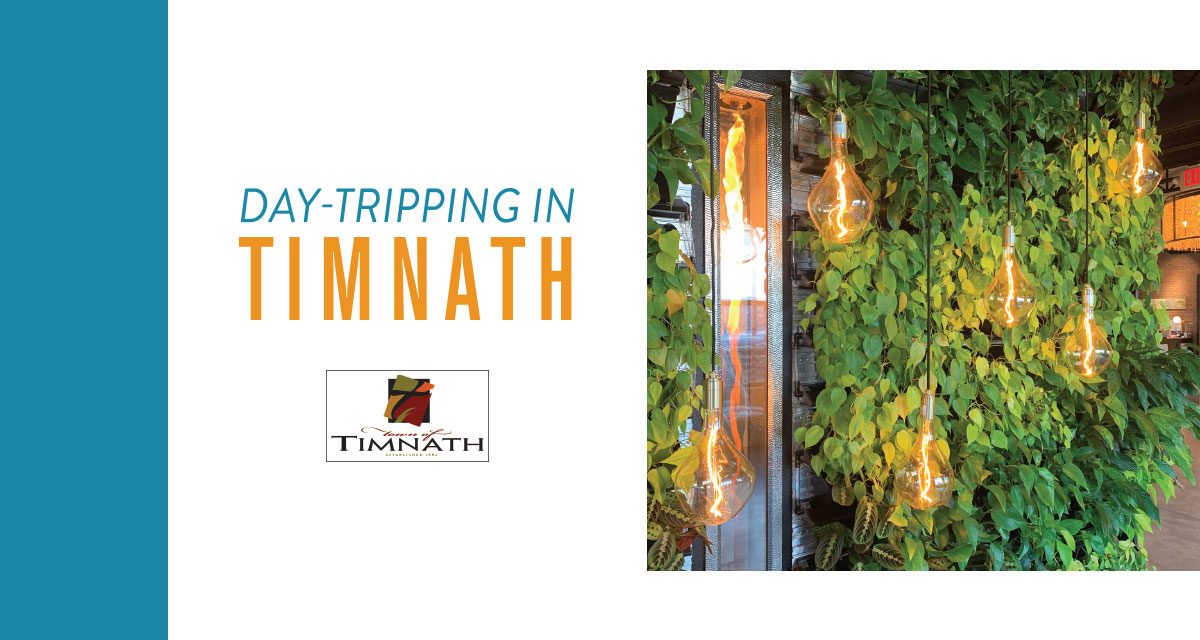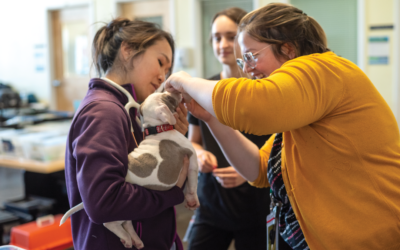The Loveland-based hockey franchise begins its 2018 season in the American Hockey League as a farm team for the Colorado Avalanche.
Change is under foot at the Budweiser Events Center in Loveland. When the Colorado Eagles hockey team takes to the ice this month, things will be different.
It still will be professional hockey.
But after 15 seasons of successfully competing at the second tier of the sport’s minor-league level in North America, the Eagles will move up to the American Hockey League for the 2018-19 season. That’s the top minor league, labeled “Triple-A” in the tradition of pro baseball’s farm system structure.
What “Triple-A” really means is being one phone call—or text—away from the “show.”
In this case, that’s the National Hockey League.
After 15 seasons of mostly feisty independence, with only a handful of trickle-down players assigned from NHL organizations, the Eagles will be the top farm club of the Denver-based Colorado Avalanche. The Avalanche’s top prospects and farmhands will be playing for the Eagles, and the movement up and down—promotions and demotions—might involve 50 mile-drives north and south on Interstate 25. That will represent a major change for the Avalanche, whose previous AHL affiliates have been all over the map, most recently as the San Antonio Rampage and before that at Cleveland as the Lake Erie Monsters.

Photo courtesy of Colorado Eagles/JKevin Bires
Instead of playing in front of crowds scattered in big-league buildings controlled by NBA franchises, the Avalanche farmhands will be in the 5,289-seat Budweiser Events Center. Windsor developer Martin Lind will remain the principal owner, but control of the on-ice product has passed from the Eagles organization to the Avalanche.
There is no disputing that the quality of hockey will go up. The Eagles and their opponents will have rosters of players destined to play in the NHL, or who already have been there and essentially are on-call replacements in case of Avalanche injuries.
That said, the key issue is whether it will be as much fun.
The Eagles won four championships in their “Double-A” days, two each in the now-defunct Central Hockey League (2005 and 2007) and then the past two seasons in the ECHL. Longtime general manager Chris Stewart, who will remain with the organization but will leave the hockey decisions to the Avalanche, was a master at lining up talent at the lower minor-league level. That required maneuvering through complicated salary cap issues, with a maximum payroll of $12,600 a week, and strict limits on the number of veteran players on each roster. The Eagles brought in veterans who were terrific at the Double-A level, but weren’t considered “prospects.” And the past two seasons, with the Avalanche using the Eagles as its lower-level farm club, the NHL sent more than the usual number of second-tier prospects to Loveland, and it worked spectacularly.
This will be different. Stewart will miss the maneuvering that goes with assembling a hybrid roster at the ECHL level, but he’s ready for that, too. Plus, the Eagles organization itself won’t have a player or coaching staff payroll, period. That will all be up to the Avalanche. Some players will be under American Hockey League contracts with the Eagles, but that’s still the Avalanche’s responsibility.

Photo courtesy of Colorado Eagles/Joe Cannata
“My opportunity is really to manage our staff when we’re within the confines of the Budweiser Events Center and keep the synergy and energy level up and make sure everybody’s willing to accept the move up to the AHL (American Hockey League),” Stewart said. “It’s certainly going to be a big change for me after 34 years in the game, but if you’re not changing, you’re not moving ahead.”
Ticket prices have gone up slightly, but the Eagles’ season-ticket package for 2018-19 still can average as low as $15 per game; parking alone is more than that at an Avalanche game at the Pepsi Center.
Greeley’s Jim Betz, 51, is in the insurance industry and renewed his two front-row—“on the glass”—season tickets.
“I think the quality of hockey is going to jump a little bit,” he said, then smiled and added, “No, a lotta bit. We’re going to see some bigger names from the Avalanche reassignments, coming down and playing here in Loveland, Colorado. I was smitten when the Avalanche came and then when the Eagles got here.”
Meghan Troudt, 33, is a fleet manager for Crop Production Services in Loveland. This will be her fifth season as a season-ticket holder.
“You’ll see players out here one night and they might get called up and you can go see them in Denver the next night,” Troudt said.
Yes, that’s the theory. The Budweiser Events Center is 53 miles from the Pepsi Center and 69 miles from the Avalanche’s Centennial practice rink, Family Sports Center. It’s not just about players going up and down, including in scrambling moves after injuries, but also about the Avalanche being able to have a more hands-on experience with their prospects and organizational-type veterans.
“Our fans are ready for the AHL, and the reason I say that is they’ve grown up with us,” Stewart said. “They’ve seen us go from the CHL to the ECHL, and now it will be the AHL. They know their hockey. They’re going to love the AHL.”

Photo courtesy of Colorado Eagles/Standout Imagery
The potential downside to the move up is that the on-ice product will be at the Avalanche’s mercy. The NHL parent team will be thinking player development foremost, and the Rampage didn’t make the playoffs in any of its three seasons as an Avalanche affiliate.
Brett Clark is a former Avalanche defenseman who now works as a player development consultant for the NHL team. He often checks in with the Avalanche prospects.
“It’s going to be a whole new scheme of things,” Clark said of the Eagles’ switch to the AHL. “You can’t ask for more for us to be in the AHL, for our players to be close to Joe Sakic and the coaching staff.”
This will be what amounts to a middle ground in the NHL movement toward teams buying and operating their own AHL franchises and having them as close geographically as is practical. The most extreme examples are the AHL San Jose Barracuda playing in the same arena as the Sharks, and the AHL Toronto Marlies playing in an arena within a short drive of the Air Canada Centre, home of the parent Maple Leafs.
“We’re inheriting a fan base that’s great for any hockey team.” Clark said. “The way they run things here, promote and do things for the fans, it’s a great fan-friendly organization. When I come to games here, it’s such an electric atmosphere. It’s sometimes like I feel I’m playing.”
Stewart jokes that the Front Range hockey corridor—with Colorado College in Colorado Springs, the University of Denver and the Avalanche in Denver, and the Eagles in Loveland—will lead to NHL executives “hanging their hat for a week here.” He added, “and then they might take their families to the mountains.”
Plus, there’s that familiarity factor. These are Avalanche prospects who in theory could be playing in the NHL the next night. That said, the most overrated aspect of this is how much easier it’s going to be to send players down. Both the Avalanche and Eagles will play half their games on the road, meaning it’s far from a sure thing that players called up or sent down will be simply making a drive to report.
But the geographic closeness can come in handy in other ways.
“You’re seeing most teams trying to get their affiliations close,” Clark said. “There’s the emergency call-ups, but I think it’s more that the NHL coaches can come out if there’s a game (in Loveland) and we’re not playing, and vice versa, the coaches from here can go down to Denver. Everybody’s on the same page, you’re not going 1,000 miles away, trying to get to the game. It’s a lot easier development-wise.”
And an end-zone seat costs less than parking at an Avalanche game.
Longtime Coloradan Terry Frei of the Greeley Tribune and Mile High Sports has been named a state’s sportswriter of the year seven times by the National Sports Media Association, four times in Colorado and three times in Oregon. He is the author of seven books, including five works of nonfiction and two novels, plus three screenplays.






